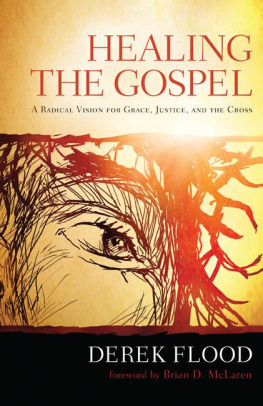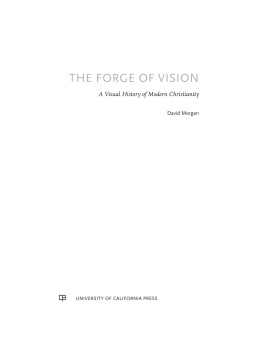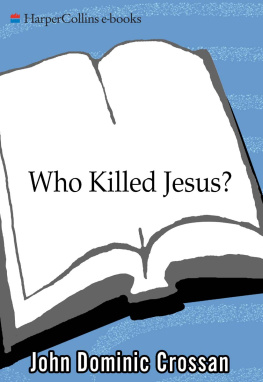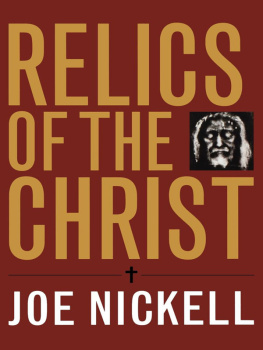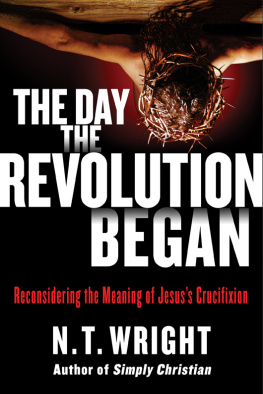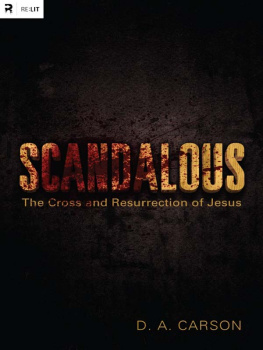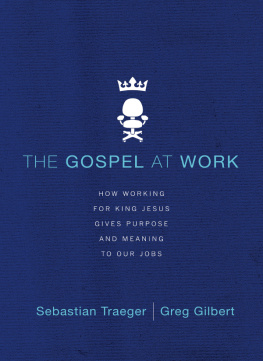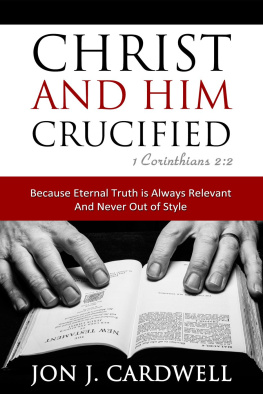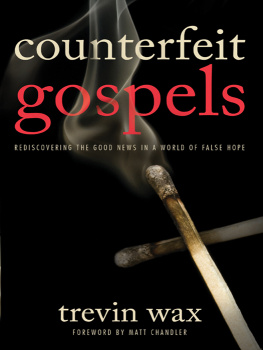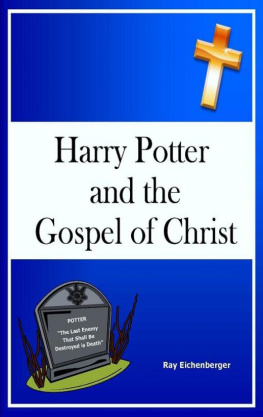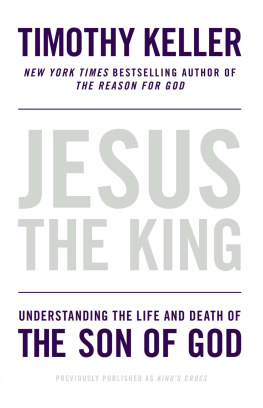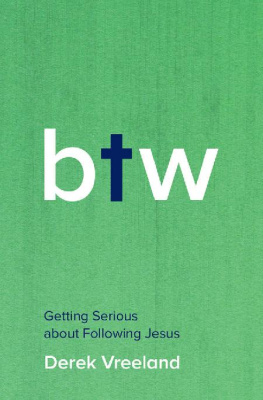In this provocative book, Flood exposes the grave deficiencies of the penal substitution model of atonement, pinpointing its shallow treatment of the depth and the gravity of sin... Armed with astute interpretations of Scripture, he focuses on the love of God and reinterprets justice as restorative... Finally, after centuries of suffering under a legal perception of atonement, Flood has shown us that the good news is truly good news!
Sharon L. Baker,
author of Razing Hell
On a cresting wave of reaction against violent atonement theory, Healing the Gospel charts a sea-change course back to Jesuss ministry as a model of gracious restoration, moving far beyond the traditional, abusive contours of penal substitution as explanation of Christs death... Jesus dies to show us Gods enemy-love, which changes everything. A splendid, stirring, and essential book!
Anthony Bartlett,
author of Cross Purposes
Anyone concerned about the connection between theology and violence in American society will welcome Floods Healing the Gospel . In a readable format, he explains why we should abandon violence-accommodating, penal substitutionary atonement, and replace it with atonement imagery that reflects the restorative justice Jesus lived.
J. Denny Weaver,
author of The Nonviolent Atonement
Healing the Gospel 
A Radical Vision for Grace, Justice, and the Cross
DEREK FLOOD
FOREWORD BY
BRIAN D. MCLAREN

HEALING THE GOSPEL
A Radical Vision for Grace, Justice, and the Cross
Copyright 2012 Derek Flood. All rights reserved. Except for brief quotations in critical publications or reviews, no part of this book may be reproduced in any manner without prior written permission from the publisher. Write: Permissions, Wipf and Stock Publishers, 199 W. 8th Ave., Suite 3, Eugene, OR 97401.
Cascade Books
An Imprint of Wipf and Stock Publishers
199 W. 8th Ave., Suite 3
Eugene, OR 97401
www.wipfandstock.com
isbn 13: 978-1-62032-162-1
eisbn 13: 978-1-62189-421-6
All scripture quotations, unless otherwise indicated, are taken from the THE HOLY BIBLE, NEW INTERNATIONAL VERSION, NIV Copyright 1973, 1978, 1984, 2011 by Biblica, Inc. Used by permission. All rights reserved worldwide.
Illustrations by Derek Flood.
Cataloging-in-Publication data:
Flood, Derek.
Healing the gospel : a radical vision for grace, justice, and the cross / Derek Flood.
xiv + 120 p. ; 23 cm. Includes bibliographical references.
isbn 13: 978-1-62032-162-1
1. Atonement. 2. Jesus ChristCrucifixion. I. Title.
BT265 . . F56 2012
Manufactured in the U.S.A.
In memory of Walter Wink (19352012)
Foreword
F OR ME, GROWING UP evangelical meant growing up believing that the gospel was the theory of penal substitutionary atonement. Trusting Christ, accepting Christ, getting saved, being born again all meantcovertly or overtlyaccepting the doctrine of penal substitutionary atonement, namely, that Gods justice requires that we all be sent to hell forever, but that God punished his perfect son Jesus in our place, which means we can go to heaven.
Thats the version of the gospel that is broadcast 24/7 on radio and television across America, around the world. Thats the version of the gospel that many missionaries use to define effectiveness, that many theologians use to define faithfulness, and that many Christians and non-Christians alike use to define Christianity itself.
Given how deeply rooted this understanding of the gospel is (especially in evangelical, charismatic, and even some Roman Catholic circles), its no wonder that I couldnt imagine questioning it for most of my life. Penal substitutionary atonement was the heart of the gospel! The whole system of Christianity would be frivolous, meaningless, or ridiculous without it!
Then came a conversation with a well-known evangelical theologian who asked me a simple question: shouldnt we let Jesus define the gospel? That question forced me to take seriously Jesus gospelthe good news of the kingdom of God, here and available now to all who repent and believe. What did Jesus mean by kingdom of God? How did that relate to my inherited understanding of the atonement?
Those questions disrupted my system, but that only meant I had to fit my cherished atonement theory in a new placemaybe not at the center of the gospel, but certainly in an important footnote position.
Then came another conversation with another well-known evangelical theologian, a few years later. He was asked what parts of evangelical theology needed to be re-thought, and without a heartbeat of hesitation, his first of three replies was the doctrine of atonement. What?
That sent me on a long process of rethinking. I started asking questions that made a lot of my friends nervous.
And back then, there was no book like this one by Derek Flood to help me. But now there is such a book to help you.
You may never have even heard the precise term penal substitutionary atonement, but you know itits the point of everything for millions of Christians around the world. The only problem that really matters? Gods just and infinite wrath at our sin. The only good news that really matters? How to be rescued from falling into that fiery lake of divine wrath. The main reason Jesus matters? Because he took that wrath upon himself so we dont have to.
If youve begun to have qualms about some parts of that doctrinal system, this is the book you need. Im enthusiastic about it for four reasons.
First, its simple and short. True, many of the ideas in this book can be found in thick and nearly impenetrable theological tomes. But no book focuses on the question of whats wrong with conventional penal substitutionary atonement theory better than this onein a slim and readable book, and in terms and syntax that any literate person can understand.
Second, it engages with Scripture in a responsible, mature, and faithful way. From his reading of Romans to his reading of Isaiah 53, from his insights into Paul to his insights into Jesus, from his engagement with specific biblical terms (like justice , sin , saving , and wrath ) to his understanding of the general biblical narrative, Derek models how to make good biblical and theological scholarship accessible to normal folks.
Third, this book engages with Christian history with equal maturity, responsibility, and faithfulness. He brings ancient voices like Athanasius and Gregory into conversation with contemporary ones like Wink, Girard, and Sittser. Where he must disagreewhether with historic figures like Anselm or contemporary ones like Packerhe does so respectfully, sympathetically, and fairly, not rudely, rashly, or dismissively.
And fourth, this book combines the mind of a theologian with the eye and heart of an artist. Derek sees that meaning comes in images and narratives, not just in formulas, theories, or models. So he combines the two, and in the process, presents us with something we thought we knew but didnt really.
No doubt thats a big part of what repentance means... acknowledging that we didnt really know before, and thereby opening ourselves up to a fresh and deeper knowing.
I had two great fears when I began rethinking my inherited understanding of the gospel and the atonement. First, I was afraid that I would get in trouble with my authority figures and peers: I lived in circles where honest difference of opinion on such matters was not easily tolerated. Second, I was afraid that I would end up somewhere that was less biblical than where I started. Because I didnt have a book available to me like this one, I stepped out with great fear and trembling.
Next page
